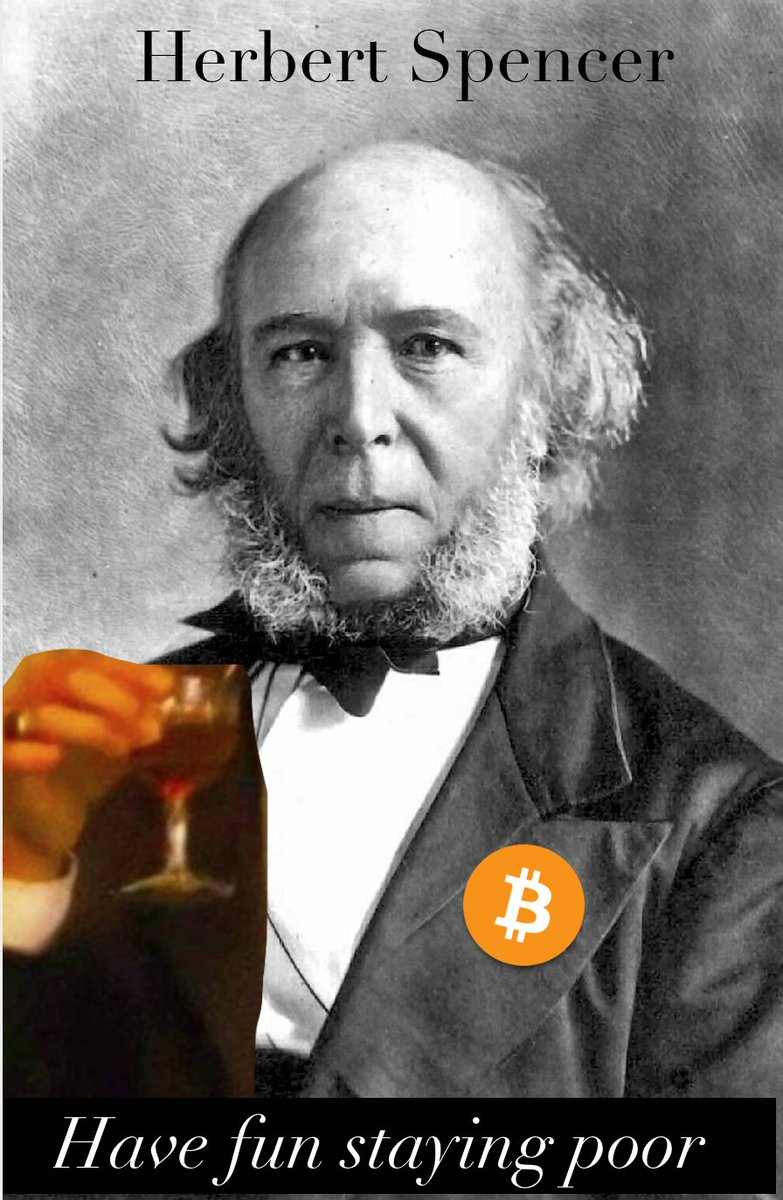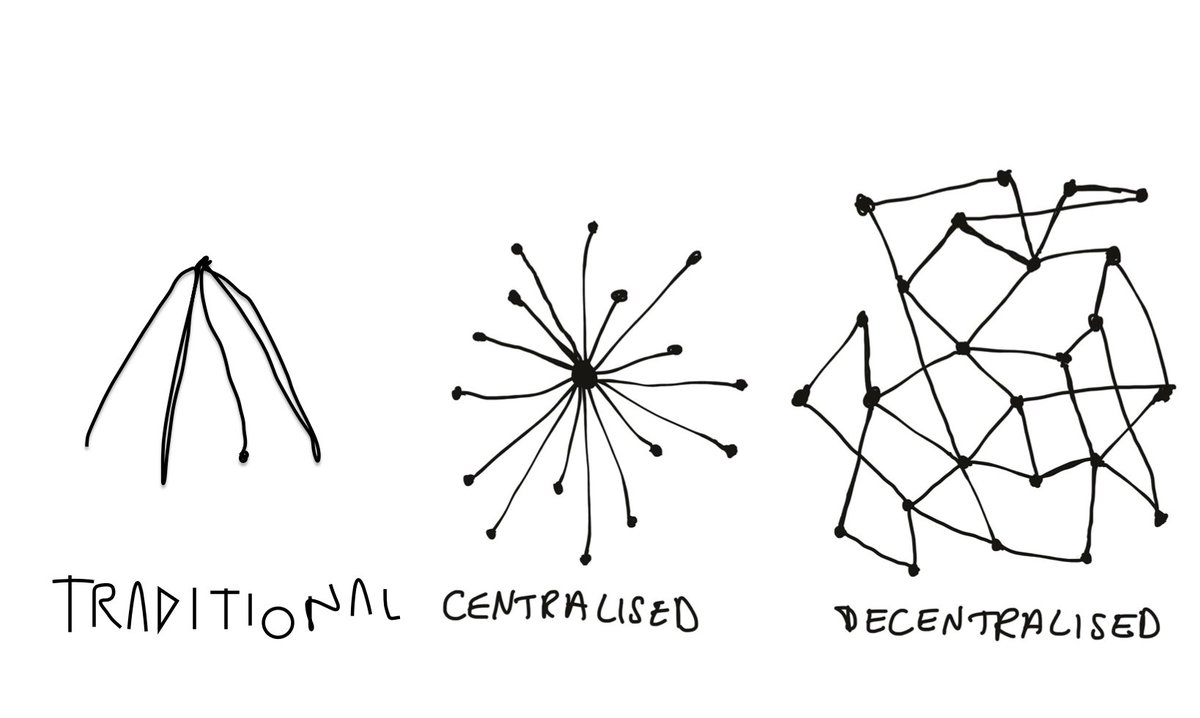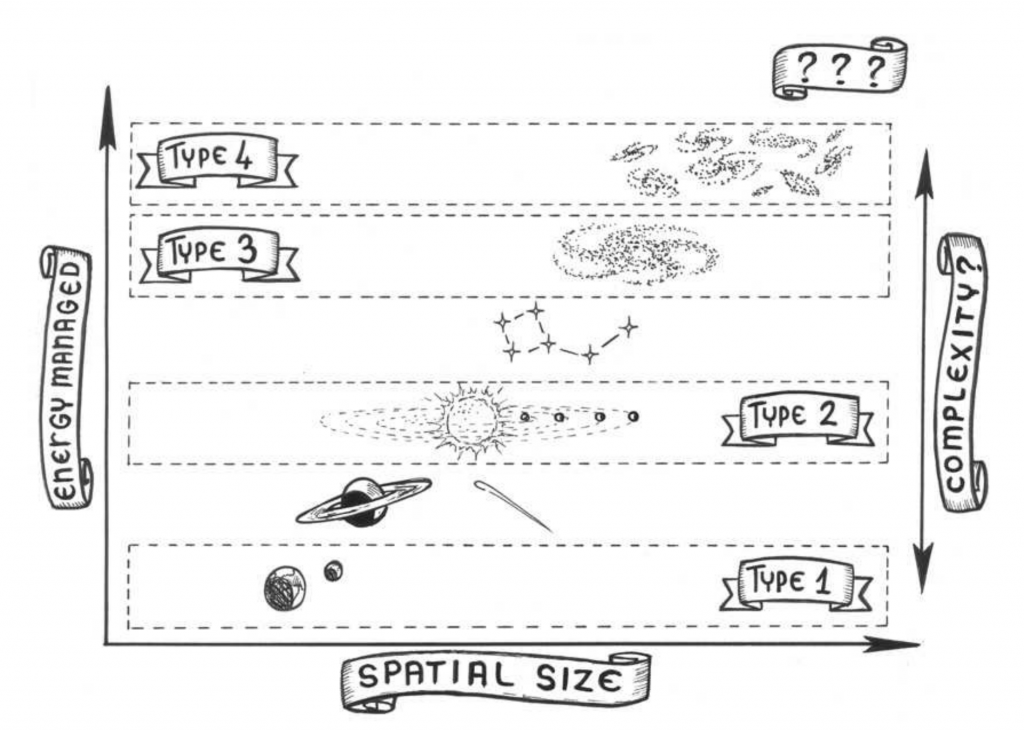Meet Herbert Spencer, 19th Century Bitcoiner.
One of the most misunderstood, misrepresented and neglected figures in the humanities today, he introduced the concept of society as an 'energetic system'.
1/10
One of the most misunderstood, misrepresented and neglected figures in the humanities today, he introduced the concept of society as an 'energetic system'.

1/10
Already in the early 19th century and before Darwin, he viewed society's degree of mastery over energy as intertwined with social evolution.
2/10
2/10
For him, energy was not something secondary to social organisation, but a vital force in society's struggle to survive and thrive.
3/10
3/10
As civilisations go from simple and homogeneous to complex and heterogeneous, their energetic sources change.
Historically, we've moved from using human to animal to industrial to digital power.
4/10
Historically, we've moved from using human to animal to industrial to digital power.
4/10
The more complex society becomes, the more autonomous and independent it becomes from centralised power.
5/10
5/10
Science has come a long way since Spencer. And his energetic/organic analogy of society is even more apt to today's world.
6/10
6/10
Today, digital energy offers the 'path of least resistance'. Software is eating up the old industrial and industrially-organised world in favour of leaner, more specialised and more de-centralised processes.
7/10
7/10
And then there is Bitcoin. An organism with a digital DNA, running on computational power.
Bitcoin exists on the premise that humans can store their energy (as money) into the future, as bitcoin's price appreciates due to its embedded scarcity function.
8/10
Bitcoin exists on the premise that humans can store their energy (as money) into the future, as bitcoin's price appreciates due to its embedded scarcity function.
8/10
To bring the energetic analogy to a close, Bitcoin functions a bit alike mycelium, which captures excess carbon and sequesters it into the ground, enables a decentralised communication network, and provides an immune-defence function ( @Bquittem).
9/10
9/10
Ultimately, Bitcoin will give rise to a more complex and specialised society that is more autonomous and free.
Spencer would have appreciated Bitcoin, and would likely be among Bitcoiners today.
10/10
Spencer would have appreciated Bitcoin, and would likely be among Bitcoiners today.
10/10

 Read on Twitter
Read on Twitter







